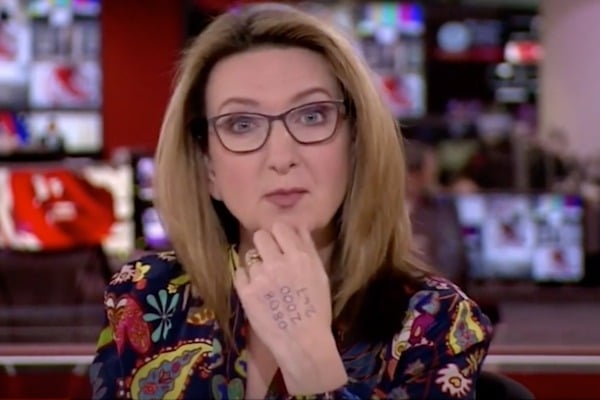
This post discusses domestic violence, and may be triggering for some readers. If this post brings up any issues for you, or if you just feel like you need to speak to someone, please call 1800 RESPECT (1800 737 732)
Journalist Victoria Derbyshire has used her position as the host of BBC News as a means to share a subtle message for victims of domestic violence.
As instances of domestic violence continue to rise around the world amid the outbreak of COVID-19, the newscaster had the phone number for the UK’s National Domestic Abuse helpline written on her hand throughout the broadcast on Monday.
Posting to Twitter following the program, Derbyshire wrote: “The National Domestic Abuse hotline has seen a 25 per cent increase in calls and online requests for help in the past week.”
The National Domestic Abuse hotline has seen a 25% increase in calls & online requests for help in past week
During the lockdown there’s also been a daily rise in people going on the helpline website & last wk that figure was up by 150%
The helpline is open 24/7 pic.twitter.com/onHBSfhERV
— Victoria Derbyshire (@vicderbyshire) April 6, 2020




























































































